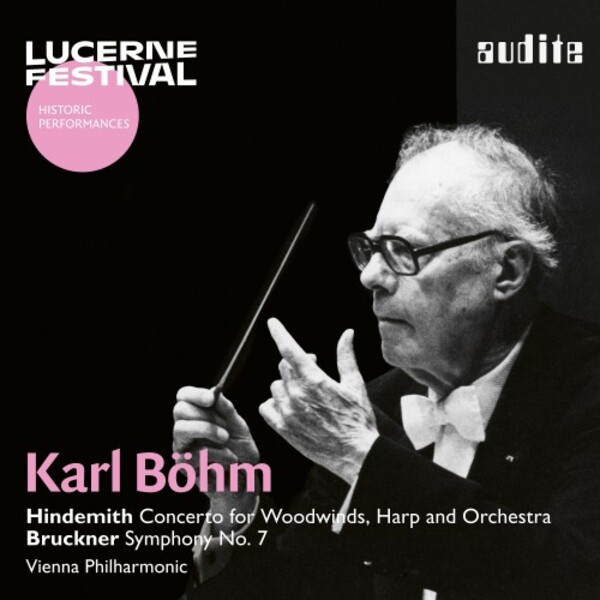
Bohm conducts Hindemith & Bruckner in Lucerne
£11.88
In stock - available for despatch within 1 working day
Despatch Information
This despatch estimate is based on information from both our own stock and the UK supplier's stock.
If ordering multiple items, we will aim to send everything together so the longest despatch estimate will apply to the complete order.
If you would rather receive certain items more quickly, please place them on a separate order.
If any unexpected delays occur, we will keep you informed of progress via email and not allow other items on the order to be held up.
If you would prefer to receive everything together regardless of any delay, please let us know via email.
Pre-orders will be despatched as close as possible to the release date.
Label: Audite
Cat No: AUDITE95649
Format: CD
Number of Discs: 1
Genre: Orchestral
Release Date: 10th September 2021
Contents
Artists
Werner Tripp (flute)Gerhard Turetschek (oboe)
Alfred Prinz (clarinet)
Ernst Pamperl (bassoon)
Hubert Jelinek (harp)
Wiener Philharmoniker
Conductor
Karl BohmWorks
Symphony no.7 in E majorConcerto for woodwind, harp and orchestra
Artists
Werner Tripp (flute)Gerhard Turetschek (oboe)
Alfred Prinz (clarinet)
Ernst Pamperl (bassoon)
Hubert Jelinek (harp)
Wiener Philharmoniker
Conductor
Karl BohmAbout
Between 1950 and 1980, he was one of the eminent conductors of international standing, and yet in the meantime he has somewhat faded into obscurity: Karl Böhm epitomised the anti-star amongst the great conductors of his time, emphatically at the service of music alone. Now available for the first time are two Lucerne concert recordings made with the Vienna Philharmonic, with whom he was closely associated for decades: Bruckner’s Seventh Symphony alongside a buoyant Hindemith concerto (the latter recorded only once by Böhm). An advocate for contemporary music in his youth, Böhm performed Paul Hindemith’s Concerto for Woodwinds, Harp and Orchestra (1949) in Lucerne in the summer of 1970. Cast in three movements, this work offers especially rewarding passages to the five-part concertino grouping and, via a quotation of Mendelssohn’s “Wedding March”, refers to Hindemith’s own silver wedding anniversary.
Alongside symphonic works of Mozart, Beethoven, Schubert, Brahms and Strauss, Anton Bruckner’s symphonies were also at the centre of Böhm’s concert repertoire. Böhm’s Bruckner interpretations possess a special aura, though he neither follows the pious, pathos-laden manner of Eugen Jochum, nor the solemn worldly style of Sergiu Celibidache, nor the austere and matter-of-fact interpretations of Nikolaus Harnoncourt. This is also demonstrated by the Lucerne concert recording of the Seventh Symphony, made in September 1964: Böhm never loses sight of the whole, but plays out every articulatory detail as notated, with almost scrupulous textual fidelity. He follows Bruckner’s block-like editing technique without aggressively emphasising it. He does not evade the solemn monumentality of the music, but he also does not exaggerate it into a sense of false, violent pathos.
Error on this page? Let us know here
Need more information on this product? Click here